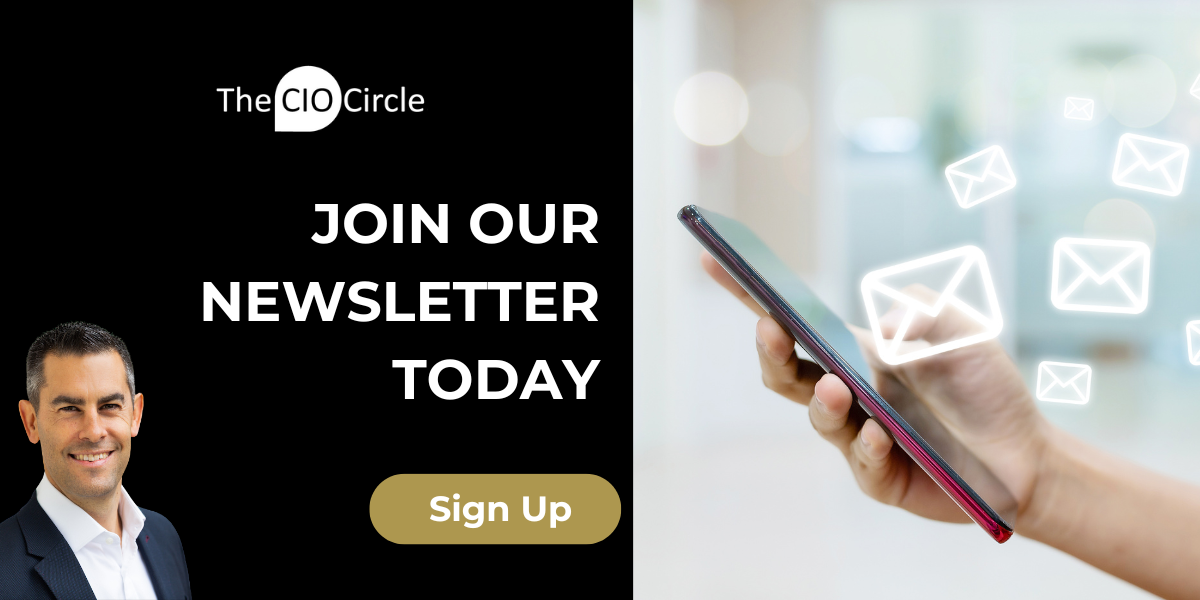Richard Hinton
Chief Information Officer at Natural History Museum
Can you please provide a little introduction about yourself.
I was appointed CIO at the Natural History Museum in July 2022 after covering the role as interim since March. Our principal site is South Kensington but we also have a museum located in Tring.
Most people will know the NHM as an iconic museum, but might not be aware that a third of our organisation, some 350 scientists, are leading the charge in research of biodiversity loss, improving crop yields in the face of climate change, and tackling diseases, supported by our unique collection of over 80m specimens. So the NHM is well placed as a trusted source of information to engage audiences with the challenges of our planet, and also be part of the solution.
What has your journey to your position been like? What path have you taken?
I'd studied computing at college but end up working in a computer sales firm which really was not where I wanted to be. My first role in an IT function proper was working for a publishing company as an IT support analyst. I'd started out looking after database reporting but I had a lucky break when that team merged with the IT function and the IT manager asked if I wanted to move into IT support. The IT support was essentially us two.
There was so much scope to learn on the job as, tackling all manner of software, hardware or networking issues. I gradually grew my knowledge and confidence as the organisation grew rapidly and I was able to look after small projects; office moves, switch rollouts, etc, and working more on infrastructure.
After 6 years I was itching for something new and was extremely fortunate to get a contracting role in IT support for the London 2012 bid team as it was. This began a surreal number of months working for a classic start-up style organisation with such an unusual purpose. An intense, demanding and dynamic organisation, but amazing people.
After winning the 2012 bid, I was able to build a team of desktop engineers who over time began to look after the fast-growing LOCOG organisation who would be running the Games.
I had a decision to make about how I wanted to develop and I was drawn to the opportunity to work on larger projects and move away from technical support. My role developed into program manager for the Technology Service Delivery function and this is where I realised I enjoyed service management planning/ service design. The role involved negotiating service and change workflows with Games tech partners, designing process flows for managing starters and leavers, and agreeing operating models for support staff in various phases of the organisation. I particularly enjoyed working in the Technology Operations Centre in change manager role and then eventually being the Deputy Venue Technology Manager at the Velodrome for the final fit-out and Games time operations.
As I was finishing at the Games an opportunity arose as a project manager at the Natural History Museum, to support their new Head of IT in putting together a service catalogue and establishing a more coherent IT function.
What began as a 6-month contract at the Museum grew as other projects emerged. My role took on wider business management responsibilities; rationalising contracts and services, analysing IT spend within and beyond the IT department, and working on budget forecasting and investment cases as part of the Digital Strategy Board.
This evolved gradually into more of a business relationship manager role working more with departments and suppliers on business change planning. I took on Enterprise Architecture responsibilities as this seemed a natural progression to help me bridge the gap between IT and the business. I'd become used to acting as the deputy CIO having been fortunate to have three managers who were supportive and challenging in giving me more responsibility.
Has it always been your vision to reach the position you’re at? Was your current role part of your vision to become a tech leader?
Honestly no. I'm an introvert by nature and I used to think that leadership was about alpha characters, very outgoing people. My style has been lead from the rear, bringing people along with me and leading through example and building trust/ influence. I'd thought about chief of staff or supporting exec roles.
I am always striving to learn more, and in all my previous roles I can see that I was pushing outwards and finding the areas I was drawn to, without knowing what the end goal was necessarily.
Once I knew I didn't want to be a technical specialist I'd pushed into project and then program management as these were really useful transferrable skills. I'd really enjoyed business analysis and service design during my time at the Games but I didn't feel I wanted to pigeonhole myself there either.
The opportunities I've had to get involved in many disciplines at the NHM is what really gave me the push towards CIO. I'd always thought I'd have to be a specialist in something, and often felt a little inadequate when in meetings with subject experts or technical specialist.
It took me a while to realise what I was bringing to the table was a broader appreciation across those areas, with a commercial and financial management grounding that I was most assured of. My helpdesk and project management background gave me the relationship management grounding
Have you had a role model or mentor that has helped you on your journey?
The three previous CIOs at the NHM have all been a tremendous influence on me. Very different styles, but all gave me every opportunity to develop.
I also have a good friend who has mentored me for a few years in enterprise architecture; sparring me and challenging me. He has given me so much of his own time support my learning.
How do you see the role of the technology leader evolving over the next 5 years?
It is no longer the business and IT; IT is fully integrated into pretty much everything organisations do today. Business leaders may know about tech opportunities in their specific areas, but it is the technology leaders who are able to map those needs across the enterprise to understand the opportunities to better share data, utiliise shared platforms and capabilities, and ensure that there is a coherent Data Digital IT thread across them.
The technology leaders are a trusted broker who can partner with business leads.
What skills do you think leaders of the future will need in order to thrive?
The ability to articulate business impact/ risk/ value related to Data Digital IT activities.
How do you keep current with new skills, technologies and personal development?
A combination of technology subscriptions, regular catch-ups with my technical leads and periodic conferences.
The museum's also have a good CIO community where we can learn from others and discussed shared challenges.
What do you see as the next leap in technology that will impact your business or industry in particular?
Digital Twin - the availability of myriad data across an organisation's operations- if combined with data analysts, you can unlock a wealth of insight.
"Always be willing to consider others point of view, and see things from their perspective."
If you were mentoring a leader of the future, what advice or guidance would you give to help them on their way?
Keep listening and learning. The more I've learned the more I realise how much I don't know. Always be willing to consider others point of view, and see things from their perspective.
Is there anything in particular that you would still like to achieve in your career or what is the next step on your journey?
We are embarking on a range of modernisation endeavours in the coming year which will keep me occupied. I'm taking on a mentorship so looking forward to supporting someone.
If you could change one thing in the world, what would it be?
For people to have a greater appreciation for the wonder of nature and cherish it
without understanding home budgeting, mortgages, credit cards etc.
A big thank you to Richard Hinton from AVI Limited for sharing his journey to date.
If you would like to gain more perspective from Tech Leaders and CIOs you can read some of our other interviews here.
Post by
The CIO Circle Editor
February 16, 2023
February 16, 2023


